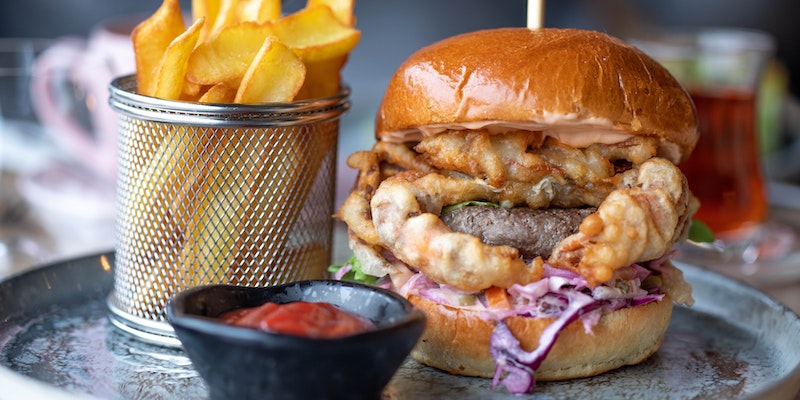Fat is often unfairly labeled as the enemy of a healthy body, but it's time to debunk that myth. While it's true that fat plays a role in calorie storage, its significance extends far beyond that single function.
In this article, we will delve into the multifaceted world of fat, exploring its many vital roles in the human body. From insulation to energy production, fat is more than just a reserve for calories; it's a crucial component for overall well-being.
What are the Different Types of Fats?
Before we explore the various functions of fat, let's understand the different types of fat found in the human body:
White Fat
White fat is the most common type of fat in our bodies, primarily responsible for energy storage. It's the soft, jiggly fat we often think of when discussing body fat.
Brown Fat
Brown fat, also known as brown adipose tissue, is a metabolic powerhouse. Unlike white fat, brown fat is packed with mitochondria and is responsible for generating heat. It helps regulate body temperature and plays a role in burning calories.
Visceral Fat
Visceral fat is the fat stored deep within the abdomen, surrounding vital organs. While some visceral fat is necessary for cushioning and protection, excessive visceral fat is linked to health problems such as heart disease and diabetes.
Fat as a Source of Energy
Now, let's delve into the many functions of fat in the human body.
Fat Storage
A fundamental role of fat is to serve as an energy reservoir. When you intake more calories than your body presently requires, the surplus is transformed into fat and reserved for future utilization. This stored energy becomes indispensable for survival in circumstances of food scarcity or when the body demands additional energy.
Long-Term Energy
While carbohydrates provide a quick source of energy, fat serves as a long-term energy reserve. When your body needs more energy than you're obtaining from your diet, it breaks down fat into fatty acids, which can be used for fuel. This is especially vital during extended periods of physical activity or when you're in a calorie deficit.
Natural Insulator
Fat acts as a natural insulator, helping to regulate your body temperature. It forms a protective layer under your skin, which helps keep you warm in cold weather. This insulating property is particularly crucial for maintaining your core body temperature.
Brown Fat Activation
Brown fat, a type of fat that is rich in mitochondria, is involved in thermoregulation. It generates heat through a process called thermogenesis. When activated, brown fat helps keep your body warm in colder conditions and expends extra calories in the process, contributing to weight management.
Protecting Organs
Visceral fat, which is stored around vital organs, provides cushioning and protection. It acts as a shock absorber, safeguarding your organs from impact or injury. However, excessive visceral fat can become harmful, increasing the risk of health issues, so it's essential to maintain a healthy balance.
Hormone Production
Fat cells are not just inert storage units; they also play a significant role in hormone production. Some hormones produced by fat cells include:
 Leptin – Leptin is known as the "satiety hormone" because it regulates your appetite and helps control your body weight. Fat cells release leptin, which signals the brain when you've had enough to eat.
Leptin – Leptin is known as the "satiety hormone" because it regulates your appetite and helps control your body weight. Fat cells release leptin, which signals the brain when you've had enough to eat.
Adiponectin – Adiponectin helps regulate insulin sensitivity and inflammation. Higher levels of adiponectin are associated with improved metabolic health.
Estrogen – In both men and women, fat cells produce a small amount of estrogen. Estrogen plays a role in various bodily functions, including bone health and reproductive processes.
What Is the Effect of Fat on the Human Body?
Here, we have compiled how fats affect our bodies.
Brain Health
Your brain is composed of about 60% fat, and it relies on fatty acids for optimal functioning. Omega-3 fatty acids, found in fatty fish and certain plant oils, are particularly crucial for brain health. They support cognitive function, memory, and mood regulation.
Skin Health
Nourishing fats, like the ones present in avocados, nuts, and seeds, play a role in enhancing the appearance of your skin, making it look vibrant and radiant. They aid in preserving the skin's moisture barrier, averting dryness, and providing defense against environmental harm. Including these healthy fats in your diet can support a more youthful complexion.
Wound Healing
Fat plays a vital role in wound healing. When you're injured, your body utilizes fat to create new cell membranes and rebuild damaged tissues. Adequate fat intake is crucial for efficient recovery.
The Importance of a Balanced Approach
While fat is undoubtedly essential for various bodily functions, it's crucial to strike a balance. Excess fat, especially when it's visceral fat, can lead to health problems, including obesity, heart disease, and diabetes. To maintain a healthy relationship with fat, consider the following tips:

Choose Healthy Fats
Choose unsaturated fats available in items like avocados, nuts, seeds, and olive oil. These fats are beneficial for heart health and provide various advantages without the adverse effects associated with saturated and trans fats.
Watch Your Portions
Portion control is key to managing your fat intake. Be mindful of serving sizes, especially when it comes to high-fat foods. Even healthy fats can contribute to weight gain when consumed excessively.
Maintain a Balanced Diet
Balancing your fat intake with other nutrients is essential. A diet rich in fruits, vegetables, whole grains, lean proteins, and healthy fats can help you achieve and maintain a healthy weight.
Conclusion
Fat is much more than just calorie storage; it's a versatile component with multiple roles in the human body. From energy storage to thermoregulation, hormone production, and skin health, fat is essential for your well-being. However, it's equally important to maintain a balanced approach to fat intake and prioritize healthy fats in your diet.
Understanding the multifaceted role of fat can help you make informed choices for your health and overall wellness. So, embrace the many facets of fat and appreciate the vital functions it performs in your body.

Protein Debate: Plant-Based Versus Whey Protein - What's Better?
Feb 21, 2024

Understanding Deodorant vs. Antiperspirant: Make Informed Personal Care Choices
Mar 07, 2024

How to Remove Eye Makeup Safely and Effectively: A Step-by-Step Guide
Mar 10, 2024

Unveiling Fresh Routes for Myasthenia Gravis Management
Nov 01, 2023

Unlocking the Benefits of Stretching
Dec 31, 2023

An Overview Of Purple Carrot
Dec 05, 2023

How Long Does Bronchitis Last
Dec 01, 2023

Granulated Sugar: Nutritional Insights and Health Implications
Dec 23, 2023

Complete Guide to Physical Therapy
Oct 21, 2023

What is Mineral Oil
Feb 02, 2024

Mastering the Pallof Press: Techniques and Benefits
Nov 06, 2023

Top Fresh Juices To Drink Early in the Morning For Health and Wealth!
Mar 27, 2024